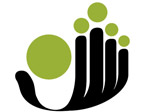- Water: A Valuable Resource – Part 1
Objectives
To appreciate the abundance of clean water in North America
To develop an awareness that our supply of drinking water should not be taken for granted
Subjects
Science, human geography, health
Nature
Cognitive, reflective
Duration
One hour
Rationale:
Water is a priceless commodity. Those of us who have access to abundant clean water often take it for granted. Many people in other parts of the world spend long hard hours every day fetching water for their family. Often this water is dirty and unsafe to drink, a cause of disease and sickness. This activity will highlight the importance of clean water and encourage participants to appreciate the abundance of drinkable water available to most North American families..
Method:
Begin this activity by listing all the uses we have for water. The list should get quite long if you start naming such things as: filling swimming pools, washing cars, filling humidifiers for homes, flooding skating rinks, washing drive ways, etc. Is this water clean? Do we have to walk a long distance to get it?
Read one story from the book to represent: a South American country, a Central American country and a Caribbean country. Participants will list all the uses of water in these countries.
Compare the facts from each country, including Canada, through a discussion. Fact sheets from the book can also be used. Do most families have access to drinking water? Is water readily available? If not, where do the people get it? How is it stored? etc.
Do you know of a community in Canada that has had a problem with its drinking water? How did the problem arise? What has the community done to solve its problem? Could you suggest some other solutions from communities with a similar problem in the future?
Materials:
Text: Families of the World
Graph paper
Chart paper
- Water A Valuable Resource – Part 2
Objectives
To appreciate the abundance of clean water in North America
To develop an awareness that our supply of drinking water should not be taken from granted
Subjects
Science, human geography, health
Nature
Cognitive, reflective
Duration
One hour
Rationale:
Water is a priceless commodity. Those of us who have access to abundant clean water often take it for granted. Many people in other parts of the world spend long hard hours every day fetching wather to their family. Often this water is dirty and unsafe to drink, a cause of disease and sickness. This activity will highlight the abundance of clean water available in most North American families and encourage participants to avoid wasting water.
Prerequisite:
Water: A Valuable Ressource – Part 1
Method:
Ask each participant to make a concise list, when they are at home, of all the uses they have for water from 6 p.m. until they go to bed. How many times did you flush the toilet? How much water did you use to brush your teeth? Was the tap left on during this activity? Did you have a shower or a bath? How long was the shower? How many times did you wash your hands? Did you use any water for washing the dishes, wiping the table, drinking? Make an estimate of how many litres you used?
Share the facts with the rest of the group (these could be graphed). Encourage discussion of the following points: Do you think we waste a lot of water in our society? Could you manage with only two 5-litre buckets for an evening? How many litres does it take to flush one toilet? (Answer: 22 litres)
Think of ways in which you and your family could conserve water without necessarily cutting down on your activities: e.g. turn the tap off while brushing your teeth or have a shorter shower.
Make some conclusions based on the group’s findings.
Ask participants to research facts about household water consumption in other parts of the world. They can compare these facts with the facts they gathered about their own water consumption.
Materials:
Text: Families of the World
Graph paper
